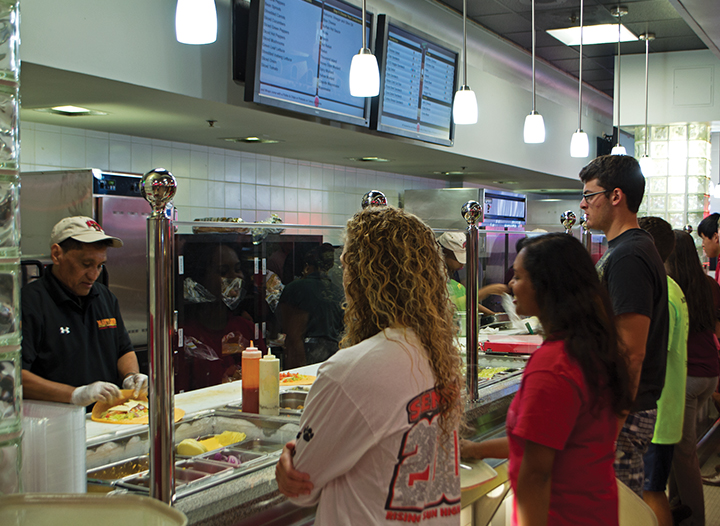Views expressed in opinion columns are the author’s own.
This semester, the University of Maryland became the first university to sign the Cool Food Pledge — an initiative that, by 2030, aims to cut greenhouse emissions of its signatories by 25 percent. Last week, my colleague Lexie Werner explored another initiative, Meatless Mondays, which she believes the university should implement as well in order to meet this goal.
While both of these programs aim for a more sustainable university — a goal most of the community can likely support — Meatless Mondays have a more direct effect on the student body that may not be practical for everyone.
It’s worth mentioning that I have been a vegetarian for nearly five years, and not only for environmental reasons. I agree wholeheartedly with all of Meatless Mondays’ goals and effects in reducing meat consumption, including personal and community health, environmentalism and preventing animal cruelty. In an ideal world, everyone would be meat-free, all the time — but we do not live in that world.
People’s reasons for consuming meat, despite the health and environmental consequences, vary by individual. For many, food in general is a sensitive aspect of daily life, either for physical or mental health reasons. For those who struggle to keep protein and iron levels up, meat can provide vital nutrition (although there are other sources of these nutrients that are veggie-friendly). Others might choose to eat meat for fitness upkeep. People who struggle with eating disorders may be even more affected by Meatless Mondays. Although the initiative would only change the menu on campus once a week, it might force those who struggle with disordered eating out of their comfort zone, make them alter their recovery plans or take away a food option they feel safe eating and worsen their symptoms.
I might be more keen on Werner’s argument for Meatless Mondays across the campus’s dining services if so many students were not required to pre-purchase these meal plans. In mandating meal plans for students in traditional dorms, the university has the responsibility to provide accessible food to everyone. This idea is central to programs like Maryland Hillel, Ramadan meal services and the vegan stations present at all three dining halls on campus. Students should feel like there’s safe and appropriate food available for them every day of the week, even if eliminating that food might be beneficial to health or the environment on a larger scale.
On the other hand, Meatless Mondays is still a great program so long as students have the ability to opt out. Promoting the choice to go meatless to students, and adjusting the amount of meat prepared based on its success, might be a good compromise between students’ right to food options and the important goals of the program. The dining halls could promote vegan options in the main dining areas, promote the initiative in the table placards, etc. — so long as they don’t mandate students to alter their diet.
Going vegetarian has impacted my life in great ways, and it’s rewarding to reflect on the lives of the animals my choice has saved, as well as the improvements to my health and the environment it has caused. If everyone who was able to participate in Meatless Mondays at this university did so, it would be easier for us to reach our sustainability goals faster — but if this initiative gains traction, I hope it will be given as a choice to students, and not a requirement.
Ray Newby is a sophomore English major. He can be reached at raynewby00@gmail.com.



